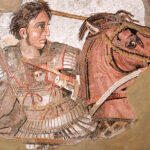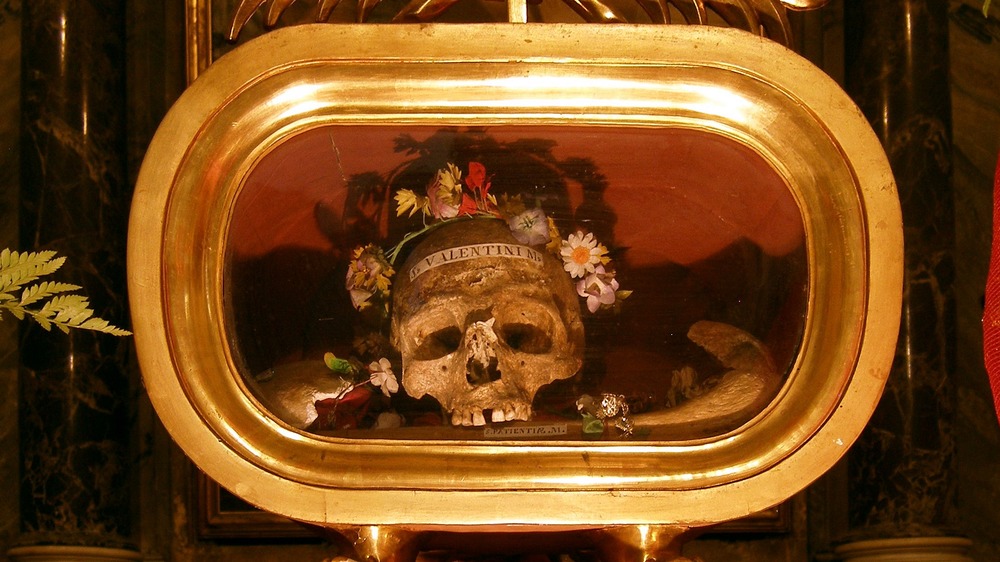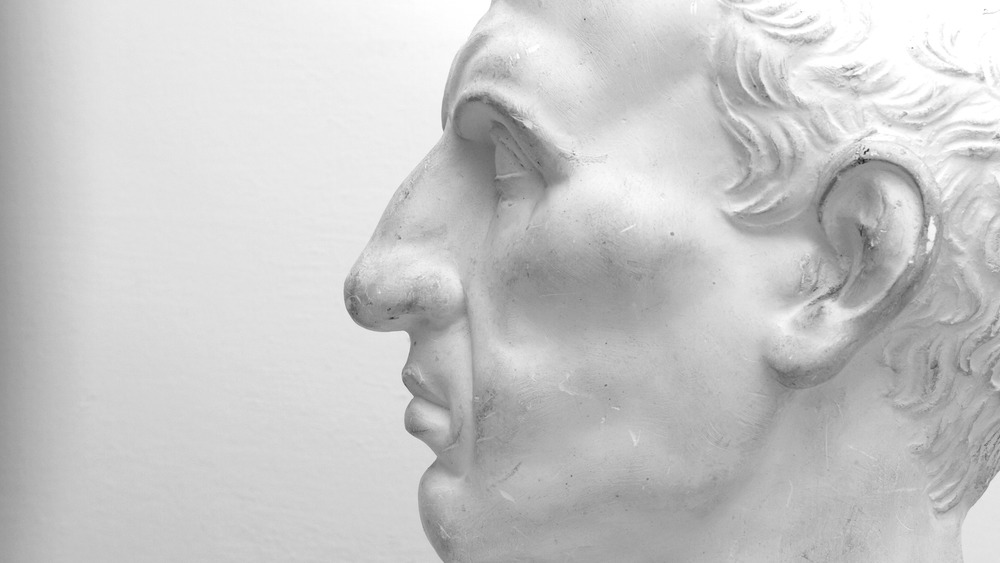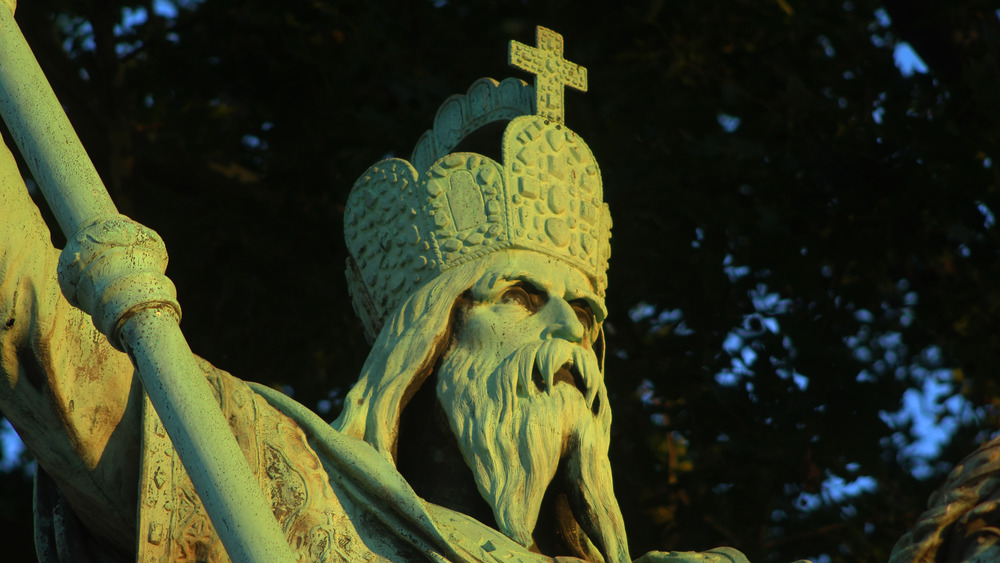
This Is The Ancient King People Admire The Most
The kings of the past receive all types of accolades. From comedian Steve Martin’s Saturday Night LiveKing Tut skit in 1978 (available on YouTube), which spent 15 weeks on the Billboard charts, to King Henry VIII, whose marriages to six wives inspired the recent musical Six (see trailer on YouTube), the leaders of the past continue to inspire and even generate admiration.
Grunge News conducted a survey of 518 people around the country and asked them which ancient king they admired most. Egypt’s boy leader and England’s former king might find fame in musical endeavors, but did not break the top five. Alexander the Great, who conquered half the world and had a penchant for naming things after the things he loved — Alexandria in Egypt was a tribute to himself and another city, Bucephala, honored a favorite horse — earned just over 40 percent of the vote.
His popularity isn’t surprising. After all, as History.com points out, he’s “one of history’s greatest military minds, who King of Macedonia and Persia, established the largest empire the ancient world had ever seen.” He did have a head start in life born as the son of King Philip II and Queen Olympias of Macedonia in 356 B.C.E. Even then Alexander had a mystique and local gossip sometimes said his father was none other than the king of gods, Zeus.
Educated by the great Greek philosopher Aristotle, Alexander showed promise at 12 when he took a horse with wild ways, the stallion Bucephalus, and trained him.
The rise and fall of Julius Caesar
Alexander the Great became king at 20 when a bodyguard assassinated his father, according to Britannica. He became a great leader and warrior who “freed the West from the menace of Persian rule and spread Greek civilization and culture into Asia and Egypt.”
His legacy lives on in the Greek rock musical Alexander the Great by Kostas Athyridis and more than a dozen TV shows and films.
No. 2 in the survey was also a great leader and conqueror — Julius Caesar, who received almost one-quarter of the votes. A Roman general, politician, and scholar, this ancient leader was more dictator than king. He “conquered the vast region of Gaul and helped initiate the end of the Roman Republic,” said History.com.
Unfortunately, for him, his popularity waned and opponents killed him brutally. Like Alexander the Great, he came from a powerful bloodline as the nephew of General Gaius Marius, an “accomplished military commander and politician,” said the Ancient History Encyclopedia. Despite not coming from a wealthy family, Caesar, who was born sometime in July 100 B.C., would assert that his heritage could be traced back to the goddess Venus.
Besides conquering many countries, Caesar had a dalliance with Cleopatra and the two had a son, Ptolemy XV Caesar. In 44 B.C., the leader stated he’d remain a dictator for life, which turned out to be until March of that year when several senators — including his friend, Decimus Junius Brutus Albinus or “Brutus” — stabbed him 23 times.
Admired leaders — Charlegmagne, Wenceslaus and Montezuma
Caesar is also immortalized in music — Julius Caesar: The Musical by Bob Bishop — as well as several plays and films, including William Shakespeare’s The Tragedy of Julius Caesar in 1599.
Medieval ruler Charlemagne, who created the Holy Roman Empire and lorded over the Franks from 768 to 814, reported Encyclopedia.com, received just over 11 percent of the tally. He might deserve even more love than that though. Live Science credits him with “encouraging arts, culture and education” to such an extent that he “tugged the continent out of cultural stagnation.” Charlemagne, who was born in 742 A.D. during the midst of the Dark Ages, would also improve the economy and switch from a gold standard to a silver one.
Wenceslaus (5.21 percent) and Montezuma (6.95 percent) rounded out the top five. You might remember Wenceslaus best from the holiday carol “Good King Wenceslas” (listen on YouTube). The Duke of Bohemia was also betrayed by someone he knew — his brother, nicknamed Boleslaus the Cruel, had him assassinated on September 28, 935. As Classic FM tells it, “The three nobles – Tira, Česta, and Hněvsa – stabbed Wenceslaus – before his own brother ran him through with a lance.”
Montezuma ruled the Aztec empire as the last fully independent leader before the Spanish arrived in the early 16th century and overpowered them. He was “considered a god by his people and a manifestation and perpetrator of the sun,” said the Ancient History Encyclopedia. A great conqueror, his empire reached from North Mexico to what is now Guatemala.

This President Appointed The Most Supreme Court Justices

The Real Reason Wu-Tang Clan's RZA Nearly Ended Up In Jail

The Stunning Amount The United States Spent On The Afghanistan War

Why Some People Are Convinced Amelia Earhart Survived Her Plane Crash

Why Patrick Heenan Is Considered A Historical Traitor

Are There Earthquakes On The Moon?

The Messed Up History Of Halloween

Why Rolanso Lexune Killed His Unsuspecting Mistress

How Many Deaths Have Happened At The Cecil Hotel?

Who Was St. Valentine?

























